There’s a lot of conflicting information out there about whether galvanized steel is safe for vegetable gardens. Some people say it’s perfectly safe, while others claim that the zinc coating on the metal will leach into the soil and contaminate your plants. So what’s the truth? In this definitive guide, we’ll answer all of your questions about galvanized steel and gardening, and give you some helpful tips on how to keep your plants healthy and safe!
What are Raised Garden Beds
Raised garden beds are one of the most popular ways to grow vegetables. They offer many benefits over traditional in-ground gardens, including better drainage, less soil compaction, and improved air circulation.
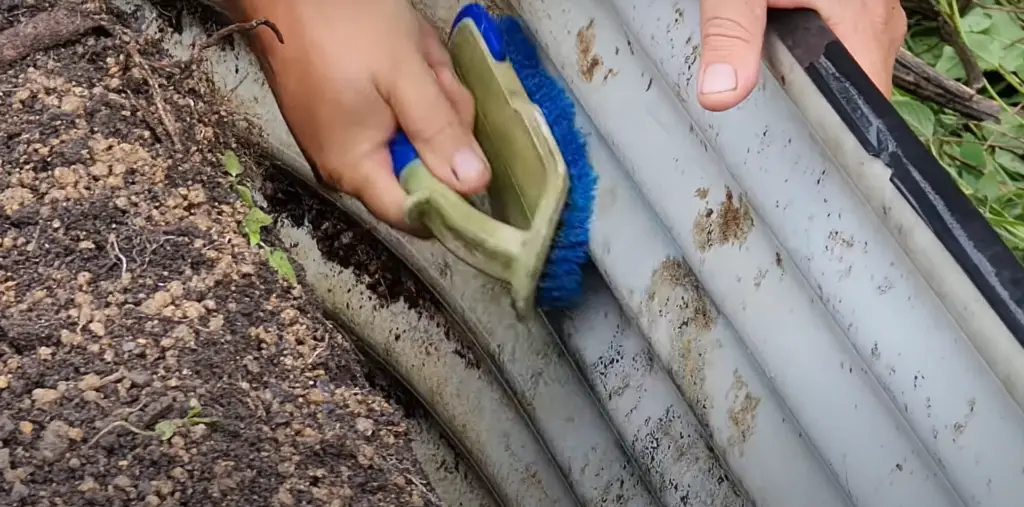
However gardeners are often confused about what type of material to use for their raised beds. One of the most common questions is whether galvanized steel is safe for vegetable gardens. To answer that question, we will first need to understand what galvanized steel is and how it is used.
What is Galvanized Steel
Galvanized steel is simply steel that has been protected from corrosion by a zinc coating. This process is called galvanization.
The most common method of galvanization is hot-dip galvanization, in which the metal is dipped into a vat of molten zinc.
This protects the metal by forming a barrier between the iron and the oxygen in the air. It is also sacrificial, meaning that if any part of the steel does rust, the zinc will corrode first, protecting the rest of the metal beneath it.
The most common method for applying this coating is through hot-dip galvanization, which involves dipping the steel into molten zinc. As the metal cools, the zinc forms a thin layer on the surface of the steel.
This layer acts as a barrier between the steel and its environment, preventing oxygen and water from reaching the underlying metal and causing corrosion. [1]
Uses for Galvanized Steel
Galvanized steel is most commonly used in construction. It is often used to make pipes, beams, and sheets for buildings. It can also be used to create fencing, gutters, and roofing that are constantly exposed to elements. Galvanized steel is also sometimes used in the food industry. For example, it can be used to make food-grade containers and utensils.
Does Galvanized Steel Leak Chemicals
However, many people raise the question of whether or not galvanized steel is safe for vegetable gardens. The main concern is that the zinc in the coating may leach into the soil and contaminate the food grown there.
Zinc is an essential micronutrient for plants, but too much can be harmful. If the level of zinc in the soil becomes too high, it can prevent plants from taking up other important nutrients, leading to nutrient deficiencies. Zinc can also be toxic to some plants at high concentrations.
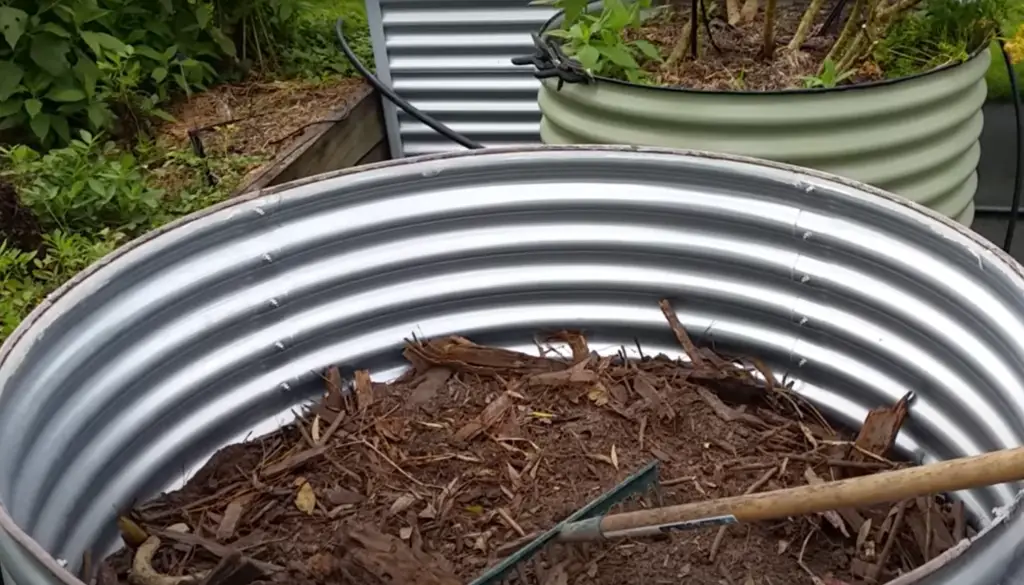
The amount of zinc that leaches from galvanized steel into the soil depends on a number of factors, including the length of time it has been buried, the pH of the soil, and how much water it comes into contact with.
If you’re using an aluzinc galvanized steel, the amount of zinc that can potentially leach into the soil is lower. Aluzinc galvanized steel has a coating that contains aluminum and zinc, which are less likely to leach into the soil than zinc alone.
The chemicals in the galvanized steel can also be harmful to animals that graze on plants grown in contaminated soil. Zinc is toxic to many animals, including sheep, at high concentrations. If you are using galvanized steel in an area where animals graze, it is important to monitor the level of zinc in the soil to ensure that it does not become too high.
You can also choose not to use galvanized steel in your garden if you’re concerned about potential contamination. There are other materials that can be used for raised beds and gardening containers, such as wood, stone, or plastic. [1],[2]
Can You Use Galvanized Steel Containers for Raised Beds?
Good news though, galvanized steel can be safe for a vegetable garden if you keep an eye on the conditions of your soil and garden environment.
Zinc is one of the most used materials in the world, and it’s not going anywhere anytime soon. So it’s obvious the manufacturer took the time to make sure it was safe for human interaction.
Galvanized steel can start leaking only when exposed to acidity, which is not the case with a raised garden bed. The soil in a raised garden is controlled and therefore it will not be exposed to any conditions that would speed up the leaching process of zinc into the soil.
The best way to protect your food from contamination is to line your galvanized steel raised bed with a food-grade liner, such as polyethylene. This will create a barrier between the zinc and your food, preventing contamination.
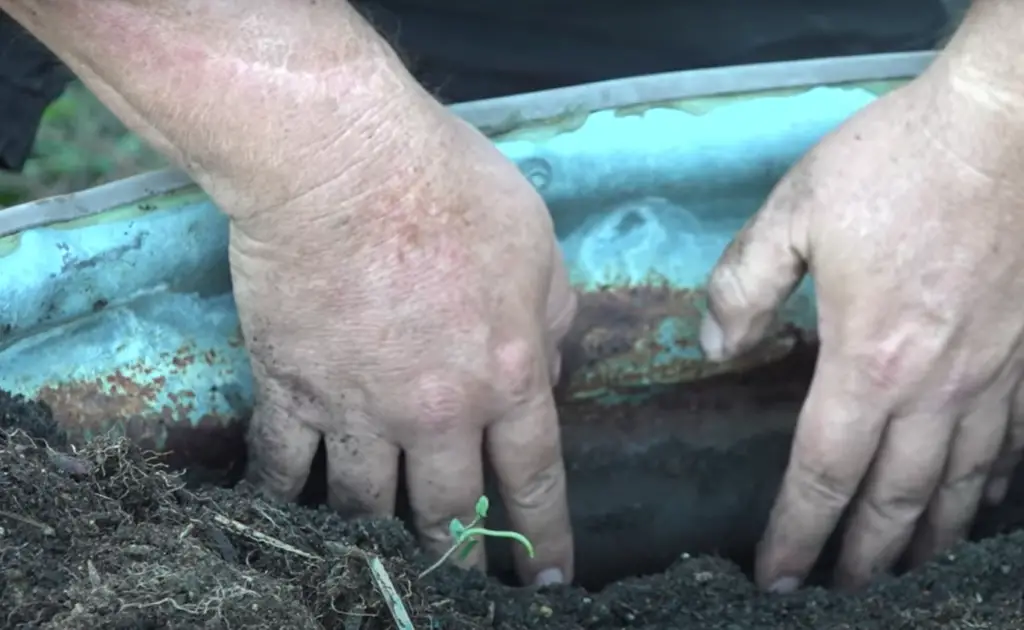
If you are concerned about the possibility of zinc leaching into your soil, you can also test the levels of zinc in your soil before and after planting. This will give you peace of mind knowing that your soil is safe for gardening. [1],[2]
Advantages of Galvanized Steel Containers for Raised Beds
But why use galvanized steel for a raised garden bed in the first place? There are actually a few reasons why galvanized steel raised beds are so popular. They have a number of advantages that make them ideal for gardening. Let’s discuss them more!
They hold moisture well
Galvanized steel is one of the most moisture-resistant materials on the market. This is due to its unique properties that make it resistant to corrosion and rust. The material is coated with a thin layer of zinc, which acts as a barrier against moisture and oxygen. Additionally, the zinc also prevents the formation of rust on the surface of the steel.
All this makes galvanized steel containers an ideal choice for raised beds because they will hold moisture better than other materials. This is important because it means your plants will have access to the water they need to grow and thrive.
Additionally, the fact that galvanized steel holds moisture well also means that you won’t have to water your plants as often. This can save you time in the long run.
They are incredibly lightweight
One of the most appealing aspects of galvanized steel raised beds is that they are incredibly lightweight. This makes them easy to move around, even when they are full of soil.
This is a huge advantage over other types of raised beds, such as those made from wood. Wood raised beds can be extremely heavy, making them difficult to move. If you want to change the location of your garden bed, it can be a real hassle. With a galvanized steel raised bed, you can easily move it to any location in your yard without any problems.
Another great thing about the lightweight design is that it makes galvanized steel raised beds easy to install. You won’t need any special tools or equipment to put them together. All you need is a level surface to put them on, and you’re good to go!
They are incredibly durable
Galvanized steel is one of the most durable materials you can use for a raised garden bed. It is resistant to rot, decay, and pests. They can withstand all types of weather conditions, including heavy rain, snow, and wind. This is thanks to the fact that they are made from galvanized steel. By now you may know that this material is designed to resist corrosion, so you won’t have to worry about your raised bed rusting or deteriorating over time. Thanks to this, your raised bed will last for years with proper care.
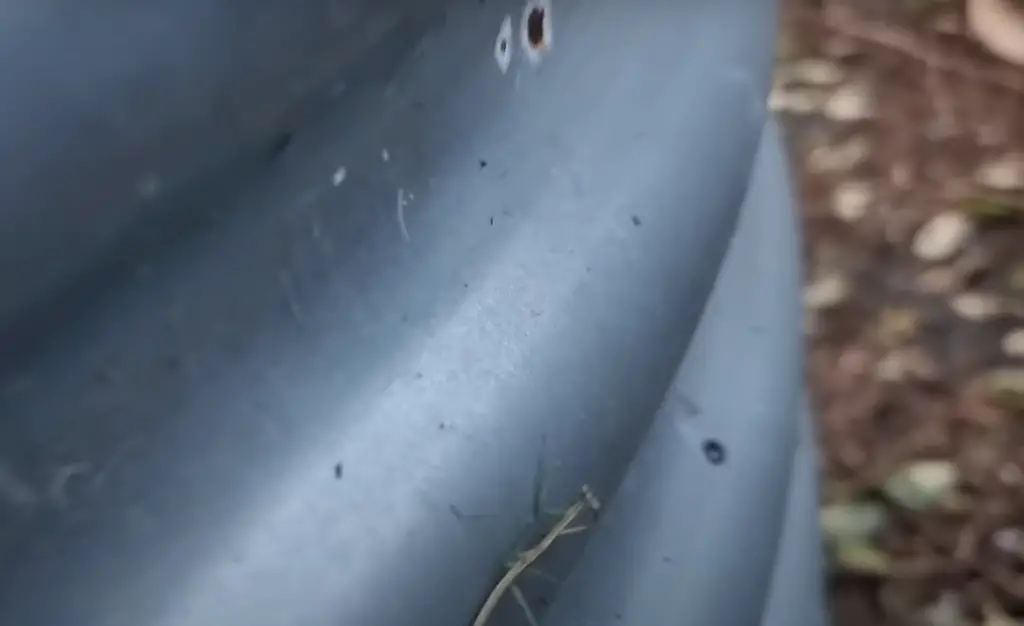
They are also easy to clean and maintain. You won’t have to worry about repainting or staining your galvanized steel raised bed like you would with other materials.
And if you live in an area with high winds, galvanized steel can help keep your raised bed in place. The weight of the steel, while light, is still heavy enough to anchor it down, preventing it from being blown over by strong gusts of wind.
It’s easy to add drain holes in them
Proper drainage is essential for raised garden beds. If water doesn’t drain properly, it can lead to a number of problems, such as root rot and fungal diseases. This is why it’s important to make sure your raised bed has proper drainage.
Galvanized steel raised beds have an advantage in this department because it’s easy to add drain holes to them. All you need is a drill and some patience, and you can add as many drain holes as you need. This way, you can be sure that your plants will always have access to the water they need without being waterlogged.
Drilling a few drainage holes won’t affect the durability of your raised bed. The holes are small, and the steel is thick enough that they won’t cause any problems.
They are cost-effective
Galvanized steel raised beds are also very cost-effective. While they may not be the cheapest option on the market, they are a great value for the price. You’ll find that they last longer than other materials, so you won’t have to replace them as often. This can save you money in the long run. You can also find galvanized steel raised beds in a variety of sizes to fit your needs. [1]
Disadvantages of Galvanized Steel Containers for Raised Beds
Despite the many advantages of using galvanized steel containers for raised beds, there are a few disadvantages to consider as well.
It’s not easily accessible
One of the biggest disadvantages of using galvanized steel containers for raised beds is that they are not easily accessible and can be difficult to find. You may have encountered plenty of wooden and plastic raised beds in your local garden center or hardware store, but finding galvanized steel containers can be a bit more challenging.
While they are becoming more popular, they are still not as widely available as other materials, so they may not be carried by all retailers.
Not compatible with acidic steel
Another disadvantage of galvanized steel containers is that they are not compatible with acidic soil. Acidic environment reacts with galvanized steel and can cause the release of zinc into the soil. This can be harmful to plants, so it’s important to avoid using them if you have acidic soil.
Most garden centers or hardware stores carry these kits.
Bigger upfront cost
As we already mentioned, galvanized steel containers come at much higher price tags than most other options on the market like wood or plastic. So if you’re on a tight budget, this may not be the best option for you.
However, it’s important to remember that galvanized steel containers are a long-term investment. They will last much longer than other materials, so you won’t have to replace them as often. This can save you money in the long run.
Managing the Space For Raised Bed Garden
Galvanized steel container is a great choice for raised bed gardening, but it’s important to manage the space properly.
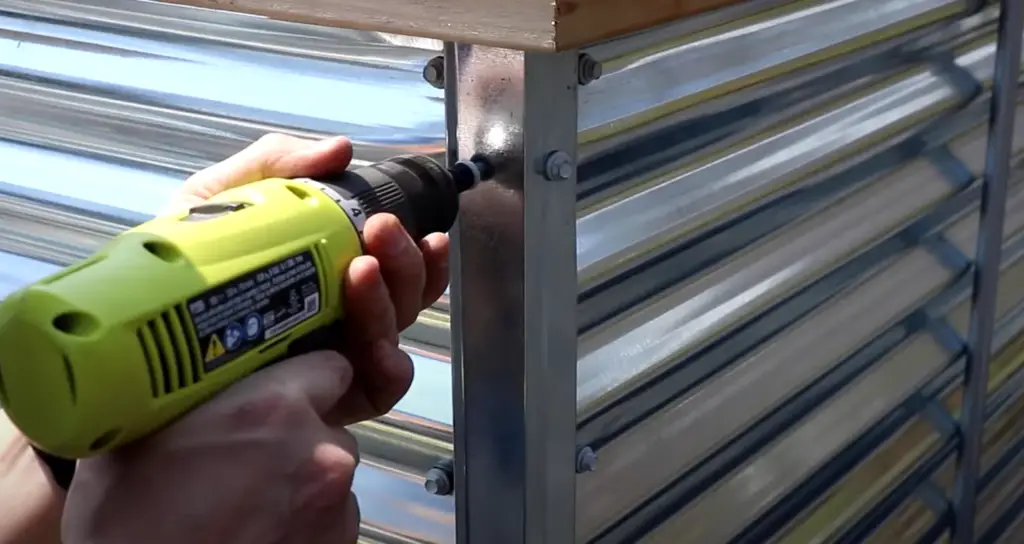
If you have a small backyard or patio, you may want to consider other options like wood or plastic. But if you have the space for it, galvanized steel containers can be a great addition to your garden.
Here are a few tips for managing the space for your galvanized steel raised bed garden:
- Place your beds in an area that gets at least six hours of sunlight per day.
- Make sure there is enough space around each bed for you to walk and work comfortably.
- If you have more than one bed, stagger them so that you can reach all of them easily without having to walk on the soil.
- If you have limited space, consider using vertical gardening techniques to maximize your garden’s potential.[2]
How to Take Care of a Galvanized Steel Bed Garden
Galvanized steel bed gardens are very low-maintenance. You don’t have to worry about them rusting or rotting away like you would with a wooden bed. However, there are a few things you should do to keep your galvanized steel bed garden looking its best.
Regularly check the acidity levels of soil
To avoid chemical leakage, you need to regularly check the acidity levels of the soil in your galvanized steel bed garden. You can do this with a simple pH test kit that you can buy at any gardening store. If the soil is too acidic, it can leach lead and other heavy metals into your vegetables. This is why it’s important to keep an eye on the acidity levels and adjust accordingly.
If your plants prefer an acidic environment, you may consider a liner made of coco peat or sphagnum moss to make the soil more acidic, but again, be mindful of potential chemical leaks.
Always use high-quality seeds
This is true for any type of garden, the seeds will have a direct impact on the health of your plants. If you use low-quality seeds, you’re more likely to end up with unhealthy plants.
High-quality seeds are more expensive, but they’re worth it. You can find high-quality seeds at most gardening stores.
Once you’ve found or ordered high-quality seeds, make sure they will receive enough nutrients. The easiest way to do this is by using a fertilizer designed for vegetables.
Clean the containers regularly
While galvanized steel is known for being low-maintenance, that doesn’t mean you should never clean it. You should aim to clean the containers at least once a month.
Avoid using harsh chemicals, as they can damage the galvanized coating.It’s also important to regularly check for leaks in your galvanized steel bed garden. Even though these beds are very low-maintenance, it’s still possible for them to develop leaks over time. If you notice any damp spots or puddles, be sure to fix them right away.
Monitor the sodium chloride levels in the environment
If you live in an area with high levels of sodium chloride in the soil, it’s important to monitor the sodium levels in your garden bed. Sodium chloride can build up over time and eventually reach toxic levels for plants. If you notice your plants starting to show signs of distress, flush the bed with fresh water to dilute the salt levels.
Besides that, sodium chloride can also accelerate the corrosion of galvanized steel. If the levels in your soil are too high, you may need to replace your bed sooner than expected.
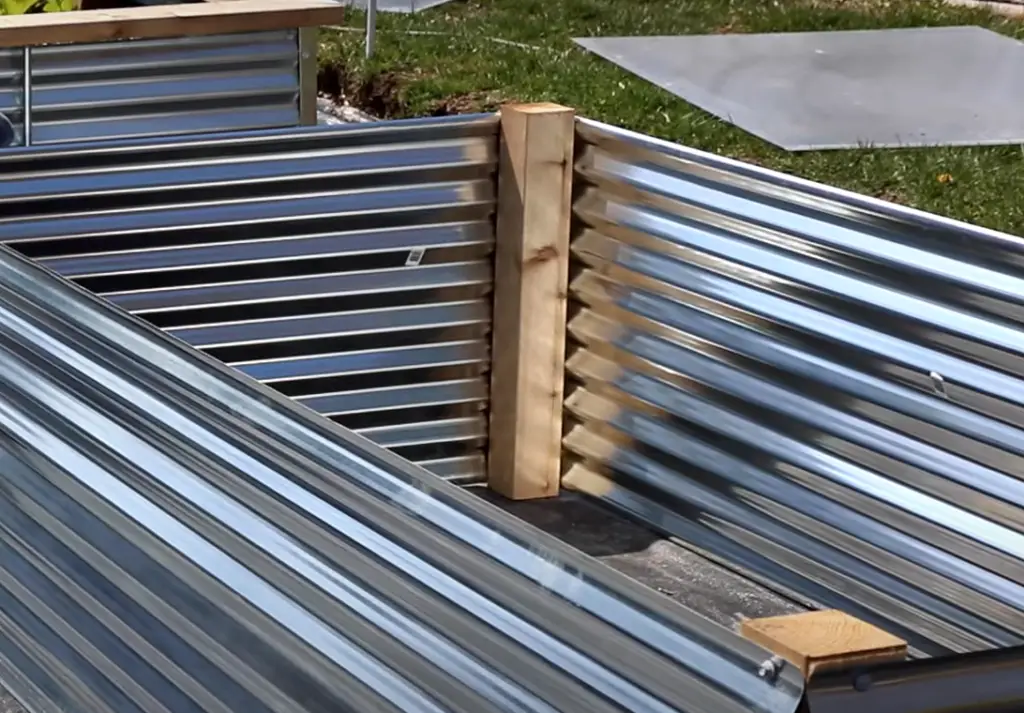
To avoid these issues, it’s best to choose a different material for your garden bed if you live in an area with high sodium chloride levels.
Don’t use fresh compost in your garden
If you’re using a galvanized steel bed garden, don’t use fresh compost in it. Fresh compost is incredibly acidic and can react with the galvanized coating on the steel. Excessive acidity will also damage the plants in your garden. If you want to use compost in your garden, make sure it’s completely decomposed first. [1],[2]
Comparison of Indicators on the Safety of Galvanized Steel for Vegetable Garden
Galvanized steel is a commonly used material for constructing raised beds in vegetable gardens. However, there have been concerns about the safety of using galvanized steel in contact with soil and plants. In this table, we will compare various indicators to evaluate the safety of using galvanized steel for a vegetable garden.
| Indicator | Safe Level | Galvanized Steel Content | Result |
|---|---|---|---|
| Lead Content | < 50 ppm | Zinc coating may contain lead | Safe if within safe level |
| Cadmium Content | < 100 ppm | Zinc coating may contain cadmium | Safe if within safe level |
| pH Level | 6.0-7.5 | Zinc may increase soil pH | Safe if within safe range |
| Corrosion Rate | 0.01-0.05 mm/year | Corrosion may release harmful metals | Safe if within safe range |
The table includes four indicators that are commonly used to evaluate the safety of galvanized steel in a vegetable garden. The first two indicators are lead and cadmium content, which can be present in the zinc coating used to galvanize the steel. The safe levels for these two metals are <50 ppm and <100 ppm, respectively. The third indicator is the pH level of the soil, as zinc can increase the soil pH. The safe range for soil pH is 6.0-7.5. The fourth indicator is the corrosion rate of the steel, as corrosion can release harmful metals into the soil. The safe range for corrosion rate is 0.01-0.05 mm/year. In general, galvanized steel is safe for a vegetable garden as long as the levels of lead, cadmium, and pH are within safe ranges and the corrosion rate is low.
FAQ
How long do galvanized raised beds last?
Galvanized steel raised beds can last for many years, but eventually the zinc will wear away. If you live in an area with high rainfall or humidity, your galvanized steel raised bed may not last as long as it would in a drier climate.
To prolong the life of your galvanized steel raised bed, consider adding a layer of protective paint or powder coating. This will help to prevent corrosion and extend the life of your raised bed.
Is galvanized steel toxic?
Galvanized steel is not toxic. The galvanization process protects the steel from rust and corrosion, which helps to keep the metal in good condition for a longer period of time.
The main concern with using galvanized steel in the garden is that the zinc coating can leach into the soil and potentially contaminate your plants. However, this is only a concern if you are using galvanized steel containers or raised beds for your plants in an acidic environment. If you are just using galvanized steel fencing or other types of garden structures, then there is no need to worry about contamination.
Can you use metal for raised garden beds?
You can use a variety of materials for raised garden beds, but it is important to consider what will come in contact with your plants. Galvanized steel is often used for raised garden beds because it is durable and does not rot. However, there are concerns about the safety of using galvanized steel for gardening because it may leach zinc into the soil if the acidity level is high enough.
Is galvanized steel toxic for vegetable gardens?
The answer to this question is a little complicated and it really depends on the environment that the steel is in and how it was manufactured. Galvanized steel can leach heavy metals into the soil which can then be taken up by plants. These heavy metals can be toxic to both humans and animals if ingested in large enough quantities. In general, however, galvanized steel is considered safe for use in vegetable gardens.
When should you not use galvanized steel?
Galvanized steel should not be used in areas where high levels of moisture are present, such as a vegetable garden. The zinc coating on galvanized steel can leach into the soil, potentially contaminating vegetables and other plants. In addition, galvanized steel is more prone to rust when exposed to moist conditions over an extended period of time. This could leave your vegetable garden vulnerable to corrosion and damage. For this reason, it is best to avoid using galvanized steel in vegetable gardens.
How long does galvanized steel last underground?
Galvanized steel is often used for fencing, garden beds, and other applications where it will come into contact with soil. This type of steel is zinc-coated to provide protection against rust and corrosion. Galvanized steel can last in soil for several years, depending on the environment. In general, galvanized steel should last up to 5 years when exposed to regular garden soil and climate conditions. However, if the galvanized steel is exposed to more extreme weather conditions or acidic soils it may not last as long.
It’s also important to note that some galvanizing processes are better than others in terms of longevity. Hot-dipped galvanized products typically last longer than pre-galvanized products which have had their coating applied with electroplating.
Is it safe to grow vegetables in galvanized steel?
Generally speaking, it is safe to grow vegetables in galvanized steel as long as the zinc coating has not been compromised. The most common worry among gardeners is that zinc might leach into the soil and be taken up by edible plants, potentially causing health concerns. However, studies have shown that zinc is not prone to leaching from galvanized steel when exposed to normal soil conditions. In addition, most soils can only hold a limited amount of zinc so any potential leaching of zinc would be quickly diluted and rendered harmless even if it did occur.
For more peace of mind, you may want to consider using a liner such as plastic or rubber when building your vegetable beds with galvanized steel. This will provide an extra layer of protection against any potential leaching of zinc into the soil. It also adds an extra layer of protection against corrosion and rust.
Will galvanized steel rust in soil?
Galvanized steel is a type of coated steel made by combining zinc and iron to protect the metal from corrosion. It’s often used in outdoor projects such as fences, planters, sheds, and gazebos. But can galvanized steel safely be used in a vegetable garden?
The short answer is yes, galvanized steel can be safely used for your vegetable garden—provided you take the proper precautions. While galvanized steel is resistant to corrosion from most weather conditions, it will slowly corrode if exposed to soil over an extended period of time. This can result in rust forming on the surface of the metal which could contaminate your vegetables and reduce their nutritional value.
To prevent this from happening, you should take steps to protect the galvanized steel from contact with soil. Apply a sealant to the surface of the metal, or line it with something impermeable such as plastic sheeting. If you’re using galvanized steel for raised beds, you can use a layer of filter fabric between the soil and the metal to further protect it from corrosion.
It’s also important to avoid using galvanized steel materials that contain lead. Lead can be toxic and can leach into vegetables grown in contaminated soil, so you should always make sure your galvanized steel doesn’t have any lead before using it in your vegetable garden.
What material is safe for raised vegetable beds?
This is a question that many people grapple with when they want to build their own raised bed garden. While wood, plastic, and stone are all good options for building beds, metal can also be used—if it’s the correct type of metal. Specifically, galvanized steel is often recommended as a safe choice for vegetable gardens due to its strong rust-resistant properties.
Galvanized steel is typically composed of two layers: an inner layer of pure steel and an outer layer of zinc. The zinc coating acts as a barrier against corrosion, meaning it won’t corrode or rust over time like untreated steel would. This makes galvanized steel an ideal material for outdoor use in areas where moisture could be an issue such as vegetable gardens.
The zinc coating also works as a deterrent to pests, keeping them away from the steel and your food. This is especially important for raised vegetable beds since the soil may be more susceptible to insects and other pests than normal soil. As an added bonus, galvanized steel can often last up to four times longer than untreated steel when exposed to moisture or other outdoor elements.
Finally, galvanized steel is easy to install because it’s lightweight and comes in pre-cut pieces. It doesn’t require any extra tools or skills to assemble, making it a great option for DIY gardeners. And if you’re looking for ways to customize your raised bed design, galvanized steel can easily be painted or stenciled with waterproof paint.
How do you make a raised garden bed with galvanized steel?
Galvanized steel is a popular choice for raised garden beds due to its affordability and durability. It’s also easier to work with than other metals, making it an ideal material for DIY raised garden beds. Here are the steps you’ll need to take when building your own galvanized steel raised garden bed:
- Start by measuring out the area where your garden bed will go. Cut four pieces of galvanized steel that match these measurements, leaving about two inches of space in between each piece for soil and plants. Make sure all cuts are clean and precise—otherwise, water or pests can creep into the crevices!
- Next, drill holes along the edges of each piece of metal using a drill bit. This will allow you to secure the four pieces together using screws or bolts.
- Once your raised garden bed is assembled, add in a layer of gravel and then top it off with potting soil. Make sure the soil is evenly distributed across the entire surface area so that your plants can grow without any blockages or uneven patches.
- Finally, plant whatever vegetables, herbs, flowers, or other plants in the galvanized steel raised garden bed. You should water often and make sure that the soil stays moist—otherwise your plants may not thrive!
What is the cheapest material to use for raised garden beds?
The cheapest material to use for raised garden beds is wood, as it is readily available and easy to work with. However, galvanized steel is also a great option since it is durable, affordable, and relatively simple to assemble. Other materials such as plastic or composite lumber can also be used but may be more expensive than wood or steel. Ultimately, the best material for your raised garden bed will depend on your budget and needs.
Can you use a galvanized tub for a garden?
The short answer is yes, galvanized steel will not leach harmful chemicals into your soil, as long as it is kept in good condition. However, there are some potential issues you should be aware of before putting a galvanized tub to use in your garden.
First and foremost, if the galvanized steel has been previously painted or treated with a sealant, it could be unsafe for vegetable gardens. Paints and sealants can contain toxic chemicals that could contaminate the soil and potentially harm vegetables that come in contact with them. It’s also possible for old paint to flake off over time and end up in your soil. If you have any doubts about the safety of the material you’re using, consider having it tested by a reputable laboratory.
Another issue to consider is that galvanized steel may rust over time, which can lead to soil contamination and reduce the lifespan of your vegetables. If you’ve purchased a new galvanized tub, look for one with a powder-coated finish that will help it withstand corrosion. Try to avoid using rusty or damaged containers in your vegetable garden.
Why is galvanized steel preferred for outdoor use?
Galvanized steel is specifically designed for outdoor use because it is coated in a layer of zinc. This coating protects the steel from corrosion and other weather-related damage, making it a good choice for projects like vegetable gardens.
In addition to its durability, galvanized steel also has some advantages when used in vegetable gardens. It’s non-toxic and safe for food production, so you don’t have to worry about any chemicals leaching into your garden soil or plants. It’s also lightweight and easy to install compared to other materials such as wood or concrete, which can make the installation process much simpler and faster.
Finally, galvanized steel is often more cost effective than other materials due to its long lifespan and low maintenance requirements. With its strength and durability, galvanized steel can last for decades without needing to be replaced or repaired.
Useful Video: What Happened to My Steel Raised Garden beds After 12 years?
Conclusion
All in all we can conclude that galvanized steel is safe for vegetable gardens as long as you take the necessary precautions. Keep the acidity levels in check, clean the galvanized steel regularly and avoid using it in areas with a lot of humidity. By following these simple tips, you can enjoy your vegetable garden for years to come without any worries. Galvanized steel is an excellent choice for a raised garden bed because it is a durable, moisture-resistant material. If you are looking for a material that will last long and help your plants thrive, look no further than galvanized steel. Thanks for reading and we hope this article was helpful. Happy gardening!
References:
- https://housegrail.com/is-galvanized-steel-safe-for-vegetable-gardens/
- https://www.epicgardening.com/galvanized-steel-garden-beds-safe/





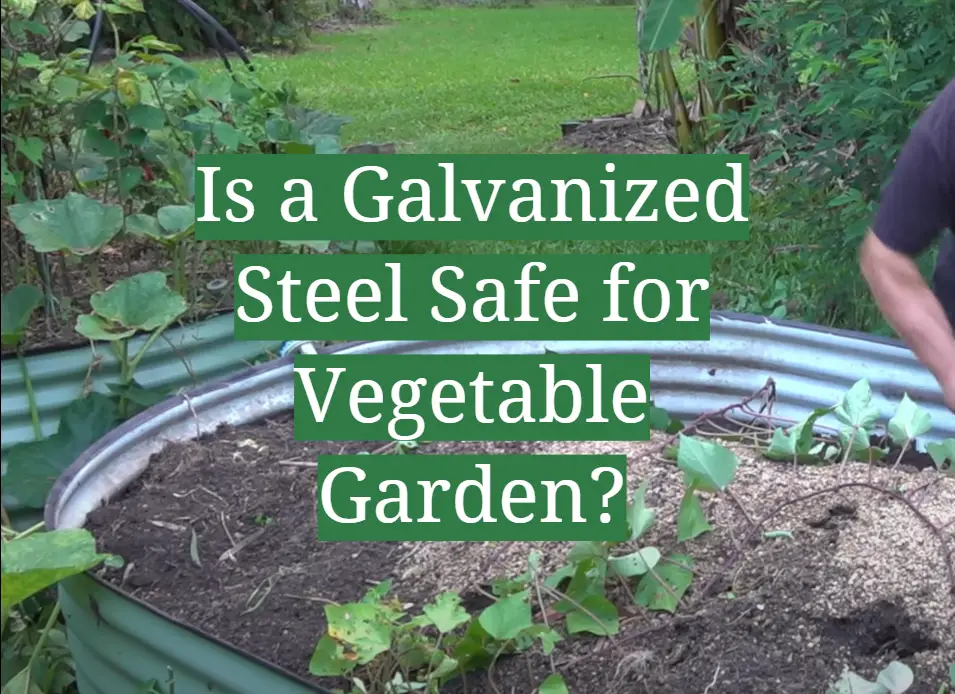
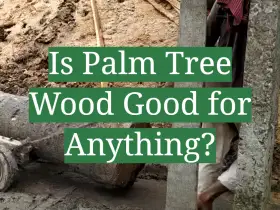
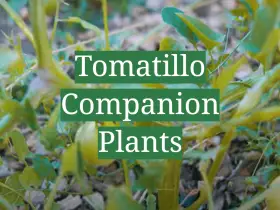
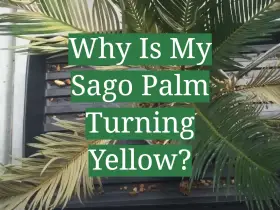

Leave a Reply
View Comments